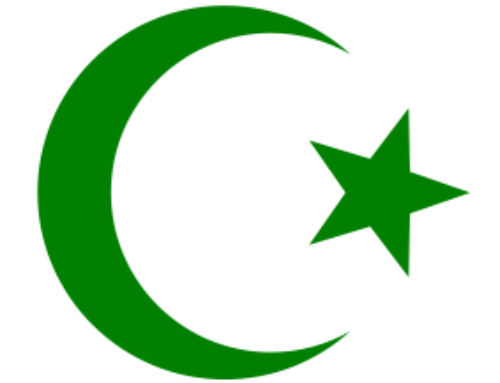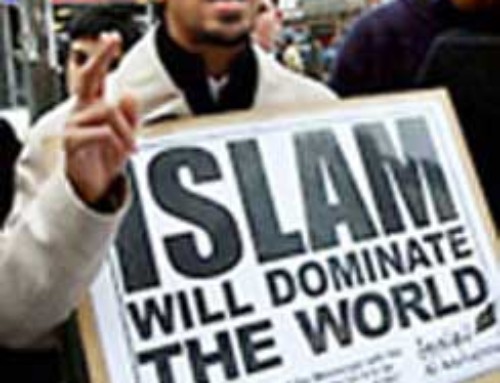News coming from Iran these days runs the gamut from the specter of the terrorist/rogue state poised to acquire nuclear weapons to the hopeful defection and disappearance of one of its top military men, Gen. Ashgari.
In the December issue of the Atlantic Monthly, Graeme Wood filed a piece titled “Iran: A Minority Report—Mapping the Rise of Discontent.” He plots on a map of Iran the scores of bombings, riots, ambushes, assassinations and kidnappings that have occurred recently in its minority regions. Wood’s piece shows that Iran is surrounded by its own mostly Sunni minority regions, Kurdistan in the Northwest, Azeris in the North, Arabs in the Southwest province of Khuzestan and the Baluchis in the Southeast. As an indicator of discontent with the Iranian Shiite theocracy, all these regions are now producing revolutionary commando brigades that are ambushing Iranian military and government targets.
Over the past few years, Iranian Kurds in the Northwest have launched more attacks, but in the lawless Southeast province of Baluchistan, the attacks are the most lethal and dramatic. In December 2005, a Baluchi group called Jundallah (God brigade) attacked Iranian President Ahmadinejad’s motorcade, killing one bodyguard. On Feb. 14, 2007, the same group killed 11 elite Iranian Revolutionary Guard forces and wounded 31 others in a bus bombing using weapons similar to those the Iranian regime is smuggling into Iraq. Two days later, Jundallah forces waged an all-out gun battle with Iranian security forces right in the Baluchi capital city of Zahedan.
The 23-year-old Abdol Maleck Rigi has now emerged as a revolutionary commander of Jundallah. As testament to his stature as a revolutionary commander, Voice of America aired a live phone interview April 1 with Rigi on its Persian-language service, introducing him as the “leader of the Iranian resistance movement.”
I spoke to Roya Teimouri, an Iranian expatriate living in Southern California who works with Iranian families throughout Iran that have loved ones in prisons and with Amnesty International and other international organs to publicize and thereby prevent prisoners of conscience from being executed, and asked her to comment on the building revolution.
I asked, “Given that many fear that the West will prove too conflicted to prevent Iran from developing nuclear weapons, what is important to know about the growing revolutionary activity going on currently inside the country?”
Teimouri answered, “After 27 years, more and more people feel cheated. Minorities, the Kurds, the Azeris, the Baluchis, Arabs, Christians, Jews and women, are still proud Iranians, but some are fighting because they think it is the only way for them to get our rights, our freedom and also to get revenge against this government that is a fraud.”
When I pressed her on her claim that the regime is a “fraud,” Teimouri responded: “When Khomeini came to Iran from France, he promised that it would be heaven on earth. But then the new government began murdering people who had anything to do with the previous government. Next, they took away all the rights of women, making them simply reproductive farms for men. Next, they attacked students. Many spent years in prison, and some were executed. Then, they began attacking and imprisoning people who were not Shiite, including Sunni Muslims.”
According to Amnesty International, Iran has amassed the third worst record in the world in terms of its sham justice system, summary executions and its murder and brutality visited upon Iranian political prisoners, women and minors. The religious zealots running Iran have put to death many high-profile people such as the female journalist, Zhra Kzemi. She came to Iran from Canada on a journalist visa and for the crime of photographing families gathered outside the notorious Evin prison—families petitioning the government for news of their imprisoned loved ones—was herself imprisoned and died under torture.
I also asked Roya if she had any information regarding the mysterious defection of Gen. Ashgari. She told me that her sources have told her that there would be many high-level defections coming soon. In fact, the mullahs have been alerted and are conducting Stalinist-like purges of suspected traitors and have just imprisoned another high-level intelligence officer, Mashallah Abas Zadeh. His crime was secretly leaking Iranian human rights violations to the international press.
Finally, there is the case of Kazemeini Boroorjerdi. He is a mullah also in prison in Tehran. His crime is advocating separation of mosque and state and peace with the West. He and several of his family members are in prison in Tehran. While he awaits his inevitable execution, his own mother has died under torture.
I spoke to Ken Timmerman, author of Countdown to Crisis, The Coming Nuclear Showdown with Iran, and asked him to comment on the revolutionary movements inside Iran. He said: “Groups such as Jundallah exist because there is a broad base of resentment against this regime. In fact, the overwhelming majority of Iranians reject the regime. Its base of support is thin and violent. But it would a tragic error for this or any U.S. administration to encourage ethnic revolt because we would then alienate 95% of the pro-democracy forces in Iran.”
I asked if he felt, then, that we shouldn’t encourage the ethnic minorities to revolt. Timmerman replied: “It’s important to note that there are pro-democracy forces within each of these various ethnic communities. But what we need to be doing is finding a way to get all of these groups to work together rather than supporting separate wars. What’s needed is a coordinated nationwide movement. A violent revolution will only open a Pandora’s box for a future dictator.”
Asked if the U.S. is making strides in that direction, Timmerman said: “No. My greatest regret is that we continue to miss real opportunities to assist the pro-democracy forces [inside Iran]. I can’t emphasize too strongly that the entrenched bureaucracy at the State Department has hijacked the pro-democracy funding put in place by the White House and steered it towards so-called reformers such as the former president, Rafsanjani. We’re funding groups in Iran who only seek to reform the attitudes of the West toward the Islamic Republic.”
One can only hope that the Bush Administration will cut off the Iran funds now being channeled through the State Department and begin supporting the majority of Iranians who do not want reform but who are instead desperate for real regime change. And hopefully this will happen before the theocracy is armed with nuclear weapons.
NOTE: Publication: Human Events





